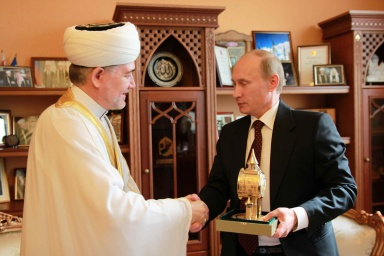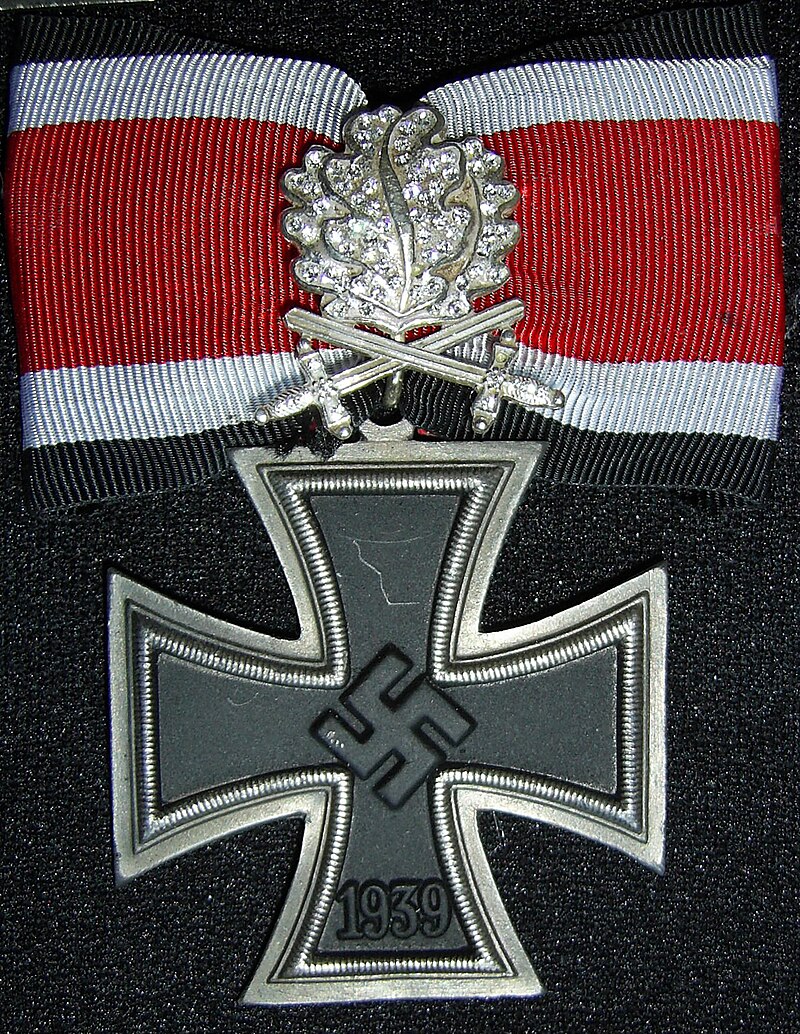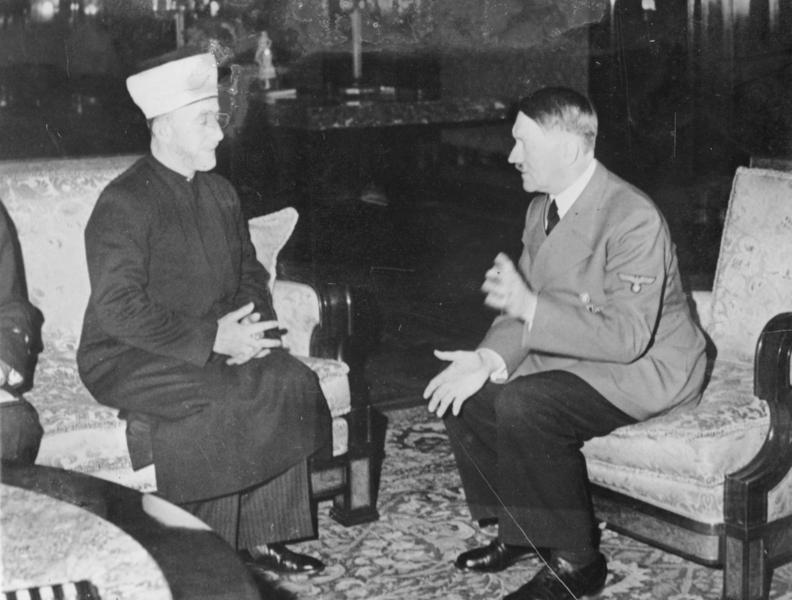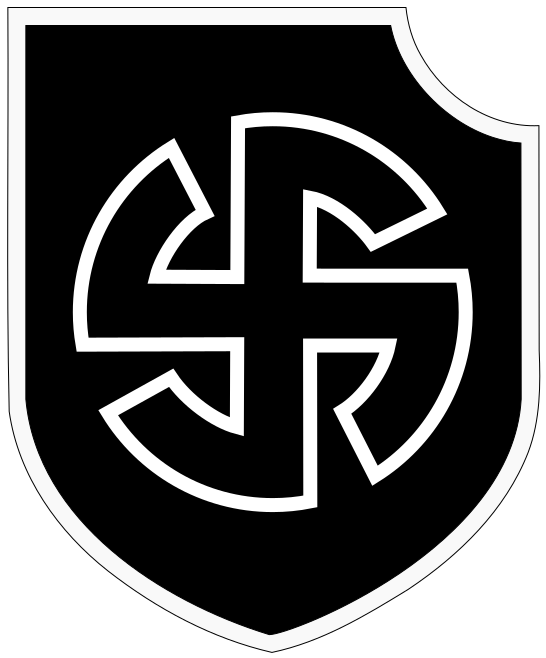مستند قوم برتر (فروکاست موسی نبی در کالبدی حیوانی!)
- ۰ نظر
- ۳۱ مرداد ۹۵ ، ۱۷:۳۹




By Tom Heneghan
Russian Orthodox Patriarch Kirill, whose Church is boycotting the Holy and Great Council of the Eastern Orthodox that opens in Crete on Monday, has said he hoped the meeting would help lead to a summit of all 14 autocephalous churches sometime in the future.
In a message to the Orthodox leaders “who have assembled on the island of Crete”, the head of the Moscow Patriarchate said his Church believed the meeting could not be a Pan-Orthodox Council because the Antioch Patriarchate had refused to attend and the Churches of Georgia, Serbia and Bulgaria had called for a delay in convening it.
He stressed that all member churches, large or small, had an equal voice in pan-Orthodox issues and said he hoped the current differences would not “weaken the God-commanded unity [and] grow into an inter-church conflict”.
“I trust that if there is good will, the meeting in Crete can become an important step towards overcoming the present differences,” Kirill said. “It can make its own contribution to the preparation of that Holy and Great Council which will unite all the local autocephalous churches without exception.”
Ecumenical Patriarch Bartholomew, the spiritual head of the world’s 250-300 million Orthodox believers, called Orthodoxy’s first supreme council in over 1,200 years as an initial step toward a revival of its conciliar system of leadership.
Council spokesman Fr John Chryssavgis has said the Council will go ahead without the absentees and its decisions would apply to all Orthodox churches. The Serbian Church initially called for the Council to be postponed, but its Patriarch Irinej attended a pre-Council meeting in Crete on Friday.
Kirill, whose Church represents about two-thirds of the world’s Orthodox, stressed its weight in inter-church affairs by sending his message “on behalf of the Russian Orthodox Church and on behalf of the Orthodox faithful in Russia, Ukraine, Belorussia, Moldova and other countries, who comprise the vast flock of the Moscow Patriarchate”.
He did not spell out the difficulties that he said the Council preparations had “fully revealed”, but remarks by a professor from his Church’s academy pointed to the larger tensions between the large Russian Church and the small Ecumenical Patriarchate of Constantinople (Istanbul).
“The Pan-Orthodox Council has failed, it is a conference of bishops,” said Alexey Svetozarsky, professor of the Moscow Theological Academy, told the Russian news agency Interfax. “The agenda is miserable.”
“We see the life of the Orthodox Church as a fraternal unity of separate local Orthodox Churches, which should settle problematic questions jointly, not dictated by a certain "Eastern pope," very small pope, caricatured in a certain sense, even though in a high rank,” he said.
Svetozarsky criticised the Ecumenical Patriarch, who attended Pope Francis’s installation and met him in the Holy Land and Lesbos, as seeking to move Orthodoxy too close to the Vatican.
"Anyone can search in [an] internet browser for 'Patriarch Bartholomew' — he jumps out of his frock as he wants to serve with the Pope of Rome,” he said. “It is an absolutely inexplicable moment. The Constantinople patriarch was the first person who congratulated the pope during enthronement at St. Peter's Square.”
Another major concern of the Moscow Patriarchate is the confused situation in Ukraine, where there are three different Ukrainian Orthodox churches — one under the Moscow Patriarchate, one under the Kiev Patriarchate founded in 1992 and a third independent group.
Orthodoxy is especially strong in Ukraine and the Moscow Patriarchate is concerned about losing members to competing churches. Ukraine’s parliament in Kiev hit that raw nerve on Thursday by approving an appeal to Bartholomew to help unite the three bodies into one autocephalous church.
"The Ukrainian parliament calls on the Ecumenical Patriarch to take an active part in overcoming the consequences of the church schism through convening under the aegis of the Ecumenical Patriarch a pan-Ukrainian unification council that would solve all disputes and unify Ukrainian Orthodox churches," the appeal said.
The Ecumenical Patriarchate recognises the Moscow-linked Ukrainian church as the region’s valid Orthodox church. The Council in Crete will not change that but the issue of whether Ukraine should have its own autocephalous church when much smaller independent Orthodox churches exist elsewhere will not go away.
HAMBURG, Nov 13, 2012 (AFP) – Hamburg concluded a “historic” accord with its Muslim and Alawite communities on Tuesday becoming the first German state to recognise certain Islamic holidays as days off.
The agreement signed by Hamburg Mayor Olaf Scholz and religious associations is seen as putting the northern port city’s Muslims and Alawites, an offshoot of Shiite Islam, on a more equal footing with Christian residents.
Hamburg is also one of Germany’s 16 federal states.
As well as handing them the right to take off some religious holidays, it allows the communities to take part in developing religious teaching in schools and the future employment of Muslim and Alawite religious studies’ teachers.
Muslims for their part undertake to respect fundamental rights and support equality between the sexes.
Scholz described the signing at the city hall as a “milestone” while Zekeriya Altug, chairman of the Hamburg branch of the DITIB Turkish-Islamic association, called it a “historic day” for both Hamburg and Germany.
“With it, Hamburg has today set a precedent for the future of our country,” his association, which was one of three Muslim groups to sign the treaty, said in a written statement.
Under the accord, Muslims in Hamburg will have the right to three religious holidays but will have to take them as part of their overall holiday entitlement as is the case for some regionally observed Christian holidays.
Until now it was down to employers to decide whether to grant Muslim staff religious days off.
“Many Muslim employees didn’t dare ask for days off on those days for fear of being seen badly,” Altug has said. “Now they will be able to say: it’s my holiday, it’s governed by law.
“That makes an enormous difference,” he added.
Hamburg, Germany’s second biggest city with a 1.8-million strong population, has some 130,000 Muslim and 50,000 Alawite inhabitants.
The agreement must still be approved by the Hamburg parliament.

The romantic notions that Heinrich Himmler had about the Bosnian Muslims were probably significant in the division’s genesis. He was personally fascinated by the Islamic faith and believed that Islam created fearless soldiers. He envisioned the creation of a Bosnian SS division constituted solely of Bosnian Muslims in a manner similar to the Bosnian divisions of the old Austro-Hungarian Empire.
Many of these soldiers came from Bosnia, and it was a
conscious decision to fight the Communist Partisans and the nationalist
Chetniks  .
The Nazis tried to cater to the Muslim religious needs of their
recruits, but the soldiers themselves cared more about protecting their
homeland (as promised by the Nazis), than anything else the SS and
Himmler told them about racial equality/superiority to the inferior
Jews. Riots and desertions were commonplace among the soldiers, often to
the Communist Partisans led by Josip Broz Tito,
who promised the soldiers amnesty if they joined the Partisans. The
soldiers were only interested in protecting their homeland in Bosnia, so
any incursions into Croatia or Serbia to help the Nazi allies or war
effort there met with consternation among the soldiers, and even more
desertions.
.
The Nazis tried to cater to the Muslim religious needs of their
recruits, but the soldiers themselves cared more about protecting their
homeland (as promised by the Nazis), than anything else the SS and
Himmler told them about racial equality/superiority to the inferior
Jews. Riots and desertions were commonplace among the soldiers, often to
the Communist Partisans led by Josip Broz Tito,
who promised the soldiers amnesty if they joined the Partisans. The
soldiers were only interested in protecting their homeland in Bosnia, so
any incursions into Croatia or Serbia to help the Nazi allies or war
effort there met with consternation among the soldiers, and even more
desertions.
The 13th Waffen Mountain Division of the SS Handschar  under command of SS Obergruppenfürer Artur “Papa Phleps” Gustav Martin Phleps
under command of SS Obergruppenfürer Artur “Papa Phleps” Gustav Martin Phleps


 was
a Muslim combat formation created by the Germans to restore order in
Yugoslavia. It was given the title Handschar after a local fighting
knife or sword carried by Turkish policemen during the centuries that
the region was part of the Ottoman Empire
was
a Muslim combat formation created by the Germans to restore order in
Yugoslavia. It was given the title Handschar after a local fighting
knife or sword carried by Turkish policemen during the centuries that
the region was part of the Ottoman Empire  .
It was the first non-Germanic Waffen-SS division, and its formation
marked the expansion of the Waffen-SS into a multi-ethnic military
force. The division was composed mostly of Bosnian Muslims (ethnic
Bosniaks) with some Catholic Croat soldiers and mostly German and
Yugoslav Volksdeutsche (ethnic German) officers.Commander Papa Phleps
was killed age 62 on 21-09-1944 in Simand, arad, Romania.
.
It was the first non-Germanic Waffen-SS division, and its formation
marked the expansion of the Waffen-SS into a multi-ethnic military
force. The division was composed mostly of Bosnian Muslims (ethnic
Bosniaks) with some Catholic Croat soldiers and mostly German and
Yugoslav Volksdeutsche (ethnic German) officers.Commander Papa Phleps
was killed age 62 on 21-09-1944 in Simand, arad, Romania.

The
division was initially sent to southern France for formation and
training. On the night of 16/17 September 1943, while the 13th SS
Division was training in France, a group of pro-Partisan soldiers led by
Muslim and Catholic junior officers staged a mutiny.  They
captured most of the German personnel and executed five German
officers. The mutineers believed that many of the enlisted men would
join them and they could reach the western Allies. Soon the revolt was
put down and as a result the division was moved to the Neuhammer
training grounds in the Silesian region of Germany (present-day Poland)
to complete its training. During the training phase, the German
officers, pleased with its progress, coined the term Mujo for the
Bosnian Muslims. The members of the division swore an oath of allegiance
to both Adolf Hitler and Ante Pavelić (Croatian leader)
They
captured most of the German personnel and executed five German
officers. The mutineers believed that many of the enlisted men would
join them and they could reach the western Allies. Soon the revolt was
put down and as a result the division was moved to the Neuhammer
training grounds in the Silesian region of Germany (present-day Poland)
to complete its training. During the training phase, the German
officers, pleased with its progress, coined the term Mujo for the
Bosnian Muslims. The members of the division swore an oath of allegiance
to both Adolf Hitler and Ante Pavelić (Croatian leader)  .
. 
The division fought briefly in the Syrmia region north of the Sava river prior to crossing into northeastern Bosnia. After crossing the Sava, it established a designated “security zone” in northeastern Bosnia between the Sava, Bosna, Drina and Spreča rivers. In late 1944, parts of the division were transferred briefly to the Zagreb area, after which the non-German members began to desert in large numbers. Over the winter of 1944–1945, it was sent to the Baranja region where it fought against the Red Army and Bulgarians throughout southern Hungary, falling back via a series of defensive lines until they were inside the Reich frontier. Five men from the Waffen-SS 13th division received the Knight’s Cross of the Iron Cross. Most of the remaining Bosnian Muslims left at this point and attempted to return to Bosnia. The rest retreated further west, hoping to surrender to the western Allies.
One of
the paradoxical aspects of Hitler’s elite Waffen-SS was that more than
half of the estimated 900.000 men that served in its units were not
full-blooded Germans. The first divisions of the Waffen-SS were
essentially purely German in manpower, but starting with the 5th SS
Panzer Division Wiking  under Obergruppenführer Felix Steiner, the
Germans began to draw on foreign volunteers from occupied countries.
Initially, only Nordic volunteers were accepted, but as the war
progressed, and manpower shortages became more acute, the Germans began
to broaden their definition of “acceptable races” to encompass just
about every race except Africans and Jews.
under Obergruppenführer Felix Steiner, the
Germans began to draw on foreign volunteers from occupied countries.
Initially, only Nordic volunteers were accepted, but as the war
progressed, and manpower shortages became more acute, the Germans began
to broaden their definition of “acceptable races” to encompass just
about every race except Africans and Jews.

The French government is considering banning the foreign financing of mosques as it reshapes its counter-extremism strategy following a fresh wave of terror attacks.
Manuel Valls, the Prime Minister, told Le Monde the prohibition would be for an indefinite period but gave no further detail on the policy.
“There needs to be a thorough review to form a new relationship with French Islam,” he added. “We live in a changed era and we must change our behaviour. This is a revolution in our security culture…the fight against radicalisation will be the task of a generation.”
Following the murder of a priest by teenage ISIS supporters at a church in Normandy and the Nice attack, Valls said France was “at war” and predicted further atrocities.
“This war, which does not only concern France, will be long and we will see more attacks,” he added.
“But we will win, because France has a strategy to win this war. First we must crush the external enemy.”
The French government has come under increasing criticism for failing to prevent atrocities, including the latest attack in Normandy.
Security services were tipped off that Abdel Malik Petitjean, 19, was planning an attack but police were reportedly unable to identify him from photos and a video showing him declaring allegiance to the so-called Islamic State.
He was already on country’s “fiche S” terror watchlist for attempting to travel to Syria in June but slipped through the net to re-enter France after being stopped by Turkish authorities. Petitjean and 19-year-old Adel Kermiche took six people hostage at a church in Saint-Étienne-du-Rouvray and slit the throat of its priest, Father Jacques Hamel, before being shot dead by police.
Kermiche was also known to security services and was wearing an electronic surveillance tag while on bail as he awaited trial for membership of a terror organisation at the time.
It came less than a fortnight after the Nice attack, when a Tunisian man killed 84 people and injured 300 more when he ploughed a lorry into crowds celebrating Bastille Day.
Mohamed Lahouaiej-Bouhlel was not among the 10,000 names on the “fiche S” but the inclusion of terrorists including several of the Paris attackers, the two Charlie Hebdo gunmen and their accomplice Amedy Coulibaly, as well as a lorry driver who beheaded his manager and attempted to blow up a chemical plant has shown the system to be ineffective.
Intelligence officials have admitted that they are under-resourced to deal with the potential threat from each individual, who would need up to 20 people monitoring them every day.
France’s continuing state of emergency has drastically expanded detention powers, sparking a wave of controversial house arrests since November.
http://afterkhomeini.afsaran.ir/